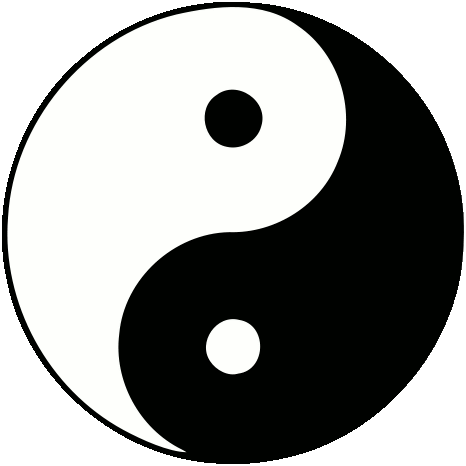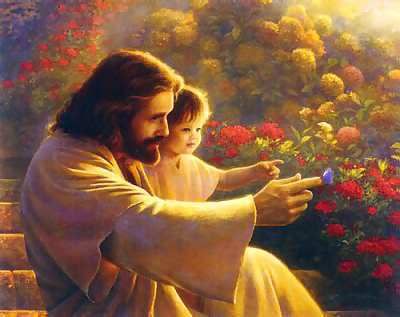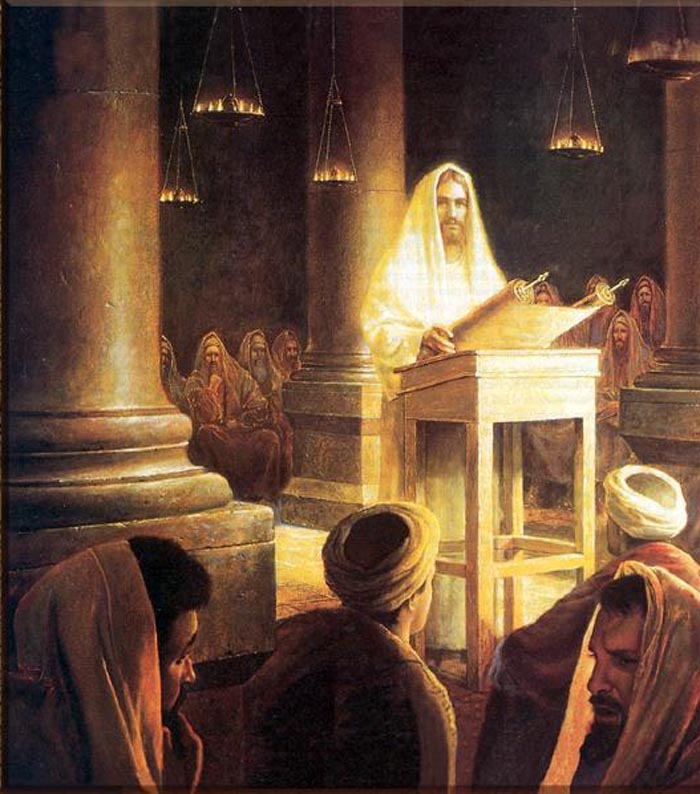No. This time it’s not an essay, because this matter is too great for me to explain, discuss, or argue systematically, I have none of the thinking capability (or at least not yet), and none the language or words that I could use to describe it comprehensively. This article is more of some sort of a sharing of my very personal experience, which I consider too peculiar. Hence the title “indescribable experience”
Since my childhood, I had a question that by normal human standard is considered abnormal, and it was “Why is it that I can see people looking at each other, but I couldn’t see me?” And that weird question didn’t stop there. It became a weird feeling that appeared within me as I grow. To feel separated from the rest of the world as if there are only two entities in this world, the first is the “I” who see, and the second is the “others” that is the rest of the world which I saw. There was never any answer to this question, so most of the time I just leave it be (I was a kid back there, what do you expect). Of course this kind of feeling comes and goes, and it even mostly goes away as I involve myself in the drama of human interaction that related to social function, social hierarchy of teenage, love life, quarrels with parents, pursuits of achievements, dissatisfaction toward my condition as human both in physical and character, etc, bla bla bla. But nevertheless it keeps returning, again, and again, and again.
As I grew a little more in character and faith (It was around high-school age), my opinions, and the way I see this weirdness grew a little. It was not just a matter of seeing anymore, but it was a matter of being truly exist in this body right here, right now. I couldn’t formulize any theory back then (and probably still can’t) since philosophy “wasn’t” my thing at that time. I couldn’t even write an article, and I wasn’t a very religious person also, or should I say that I did believed (yes it is past tense) in God, but had a quite discomfort toward religious rituals, and the idea of religious salvation that makes me feel doesn’t belong to it (at least at that time), it didn’t touch my heart. But nevertheless, this weird feeling eventually gave me the unbreakable faith to the existence of God, and I eventually stating to myself “There must be God, because I am here” (I was already in medical school by the time I have this idea). And no I wasn’t saying it in a sense like most faithful religious devotee said it “of course there should be God, because He created us”, no definitely not. As the matter of fact, I didn’t care whether we human being is created from the ashes or whether it’s a result of billions of years of evolution that originated from a single cell creatures, because as far as I’m concern, even if we really are the result of evolution, it also works in God’s way. Well, probably different from biblical way but still God’s way, it still is God’s work. I was saying it in a sense that my “being”, exists in this time, in this space, experiencing the world by vision, touch, and taste, is too weird to be called normal and there is no way such anomaly happens without the intervention of God in it. Weird huh, and sounds too narcissistic.
Then there were times that I was too busy thinking on “how am I supposed to life as human”. It occupied my mind for quite a long time, and hence the entire search of “the way” (not the existence) from martial arts, eastern religion and philosophies, books that explaining a way of life, and ultimately brings me back to Christianity, while still seeking from every source that the world could offer (Since I personally think that there is nothing in this world that is beyond the power of God). And this period of search is actually the most influential period of my life. It has shaped my vision about humanity, religion, universe, life, and God. It makes me a person that I never thought I would be, but there are moments when that feeling of anomaly returns, and it keeps returning but I don’t take heed of its call.
Lately, a friend of mind poisoned me with ancient Greeks, Germans, French and other western philosophy. At first I took it casually and later seriously but still related it to my perception about the world, universe and God. But just recently as if the “ingredients” that are gathered has quite enough, I suddenly experience this “explosion” of anomaly in a scale that I have never thought could have happen before. That night, I was reading some novel that actually has nothing to do with it, but it mentioned the experience of death, and it made me think about life, body, and soul. And suddenly the anomaly attacks my mind and heart out of nowhere, I scream to myself question like “What is this?” - While looking to both of my hands and moving it as if I’m wearing a new robot body -; “What the hell am I doing here?”; “Why am I here? Why now? In this time, in this age” Then I imagined myself seeing other “human object” and think “they are they, they are different from me, I am a subject who sees” “So if the objects are human, what am I? Am I still existentially can be called as human? (Of course scientifically I am human) Do I really belong here?” The subjective feeling is so intense that I could probably conclude it as “crystallization of consciousness”. I even scream in frustration that night, because in the face of such fundamental question about existence, other matters become minute and meaningless. “How can I continue to live without understanding the life itself?” I thought at that time.
Let me try to describe a little bit about the subjective experience of “seeing other humans as different objects” with an analogy. Take our eyes for example. We see many colors in the world and have a consensus about the colors that exist in this world. But in reality, what we see are actually photons and waves with certain frequencies, and then our brain is the one that actually interpret the wavelength as colors and thus we called certain wavelength with certain colors. The problem lies in “does our brain interpret the wavelength in the same way?” Take red for example. We have seen that particular wavelength since we were born, our brain has interpreted it in its particular way, and we were taught to called the interpretation of that particular color as red. So we all agreed to call it red. But there is a chance that color that I called red is interpreted my brain as color (X), while by your brain as color (Y), but we all agreed to call it red. Whether this is true or not, I don’t know. This is just an analogy, but yet there is no way to find it out right? There is no way you could truly experience that the red that I see, because it isn’t you who sees it. Same goes for subjectivity. I can certainly observe the “symptoms” that you are the same as I am, and take the conclusion that we are both a conscious and functionally living human. But there is no way I could experience your experience of consciousness, there is no way I could be sure whether you are as conscious as I am. Why? Because to me, my existence is the only one that I can be sure is real. I can’t be sure whether you are real or not because I don’t experience your consciousness as I experienced mine. From my point of view, being real, exist and conscious is like being the one who sees, moves, and thinks. And that consequently will lead to two possibilities. First possibility is that if our consciousness is the same, but since we are separated, I can’t experience other people existence. The second possibility is that my consciousness is unique to myself, that other human beings have a different level of consciousness, or probably different entirely, a different “thing”. Which stand point will I take? When I’m assessing it in philosophical manner, of course the first possibility is the one that fits. But when I’m assessing it as “The one who sees”, the condition of being the subject itself already put me in the situation where I can’t see the sameness of our consciousness. Confused? So do I.
Another thing is that the feeling of being truly unmistakably real, is so intense, that it is impossible that it – the consciousness – will gone one day even when my body dies. It’s a combination of experience of being truly exist in physical manner, and of being truly conscious as a “soul” (the only words that I think resembles the crystallize consciousness). In this sense, I personally think that both Platon and Aristoteles are wrong and right. The former argue that the true existence is something that is not in the physical world but is in the world of ideas, in other dimension. And the later argue that reality is the one that you can experience in this physical world. In my experience (not just opinion) existence is very real physical manner but also has its unexplained non-physical aspect. And from that point of view, I personally think every simpleton atheist – who is being content of the idea that there is nothing more other then the physical world seeks nothing else about the meaning of this life – is a creature with lower level of subjectivity and consciousness – except the father of Atheism whose name I forgot and whose idea is somewhat related to cosmic and inner “God”. Their unawareness of existence is low enough to make such contentment possible. There is no consciousness within them great enough to make them think about existence seriously. No, I’m not being a religious devotee who fears that “if there is no soul and God then our life would be meaningless” and thus clings to the idea of heaven and hell. But I personally think that based on my “indescribable experience” of anomaly, there is more to life than just a world of chemical matters, and no I don’t need any bible or prophet to tell or confirm me about it. I’m sure of it by myself.
So that night actually bothers me with several things at the time, those are: 1) Am I existentially the same with other human being? 2) Crystallized Consciousness (or soul), its origin and its fate after leaving the physical being (which I’ll never try to discuss). 3) The purpose of being this anomalous existence in the end (if it really is anomalous). And as you can see, I am sometimes being philosophical, sometimes being religious, and sometimes being a semi-lunatic in the manner that I write this article. It is inconsistent, it experience some change of perception based on which point of view that I try to explain it. Heck I don’t care. It’s not an essay anyway.



.jpg)




























